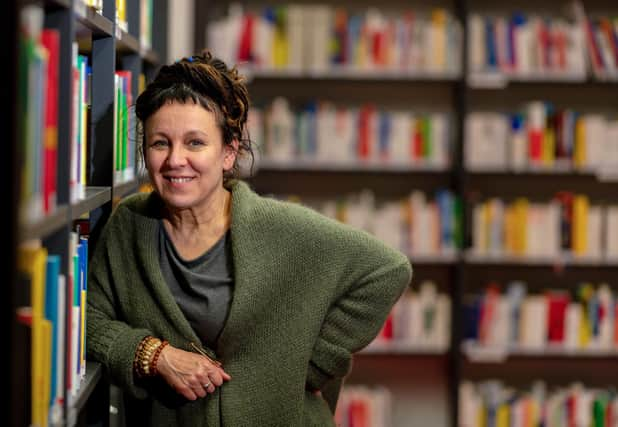The Books of Jacob by Polish Nobel laureate Olga Tokarczuk is an epic tale of an alternative Enlightenment – Laura Waddell


The first hint The Books of Jacob by Polish Nobel laureate Olga Tokarczuk was going to be no ordinary historical epic was that its pages are numbered backwards. We begin at page 892, at least in this Fitzcarraldo Editions translation by Jennifer Croft, and count down to one, in Hebrew tradition.
It is the kind of book that, if you happen to be reading in company, your friends will rib for its thickness. But I was happy to lug it around town, like a brick in a tote bag, tension ramping up as page numbers ticked down.
Advertisement
Hide AdAdvertisement
Hide AdJacob Frank was an 18th-century charismatic mystic and is still an infamous Polish historical figure. He flitted between Judaism, Catholicism and Islam, upending convention, attracting enemies who accused him of con artistry as well a fervent following who believed him to be the Messiah.
After his banishment, a caravan tracked him to Turkey to follow his eccentric commands, witness ecstatic episodes, or, if they were very lucky, to be healed by his touch or take part in rumoured hedonistic rituals.
Naturally, all of this spiritualism clashing with worldly hungers causes enough mayhem for 900 or so pages. Even the simplest religious schisms are complex to follow, nevermind those straddling three major religions and multiple countries. Occasionally losing track of names, I went with the flow, as I would any ‘real’ religious book. But in an accompanying pamphlet Tokarczuk describes how she brought it all together.
Beginning research out of personal curiosity (in particular she describes finding inspiration in Nowe Ateny, or ‘New Athens’, an early Polish encyclopedia by Father Benedikt Chmielowski), she “soon noticed that occasionally this history takes on a sort of morose but unintentionally absurd comedy, with some surprising turns of action straight out of an operetta. The endless quid pro quo, the role-playing, the posing, the multilingual context that easily leads to misunderstandings, the colourful characters – it all seemed to demand a literary frame, the epic medium of storytelling”.
Tokarczuk deserves applause for turning fragments from history into this epic tale of the alternative Enlightenment.
A message from the Editor:
Thank you for reading this article. We're more reliant on your support than ever as the shift in consumer habits brought about by coronavirus impacts our advertisers.
If you haven't already, please consider supporting our trusted, fact-checked journalism by taking out a digital subscription.
Comments
Want to join the conversation? Please or to comment on this article.

